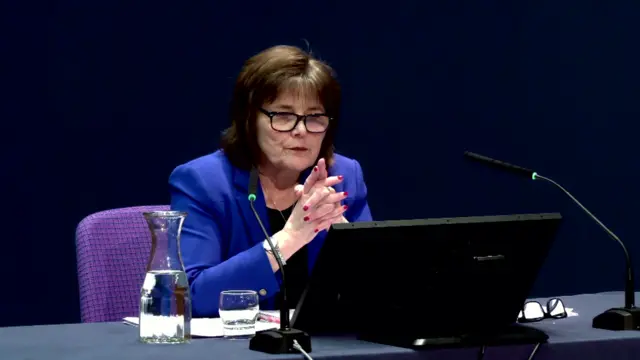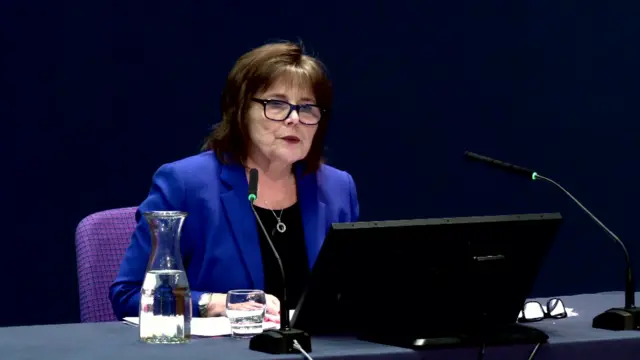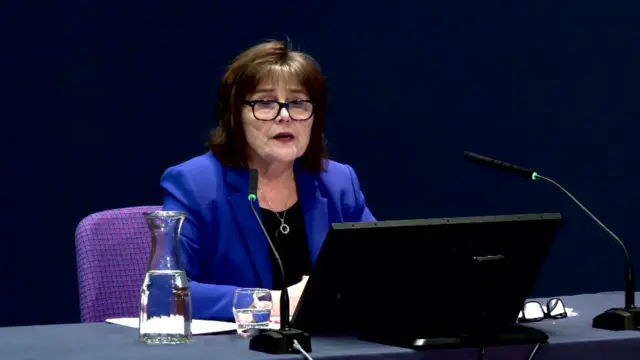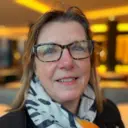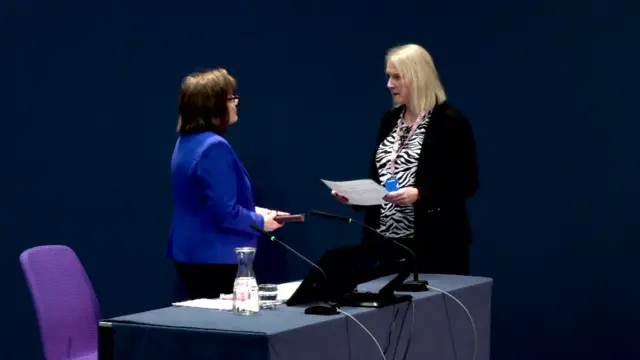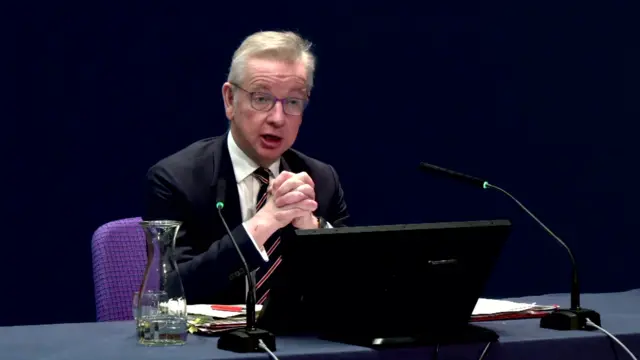Health secretary's 'growing trepidation' as virus loomedpublished at 14:43 GMT 29 January 2024
Inquiry lawyer Jamie Dawson KC asks Freeman about how she felt after receiving warnings about how serious the Covid situation could become.
Freeman says: "I had a growing feeling of trepidation about what we were about to have to deal with, all through that month of January."
She says her colleague Dr Calderwood shared these feelings: "Dr Calderwood was increasingly clear with me and her colleagues in the health directorate about just how serious this could end up being and to quickly disabuse ourselves of any notion this might be a repeat of H1N1."
